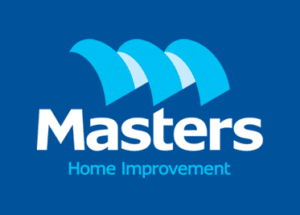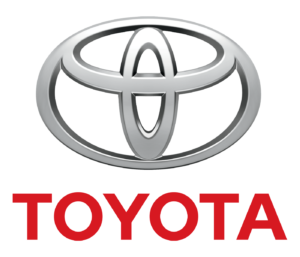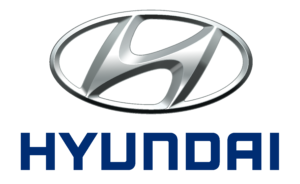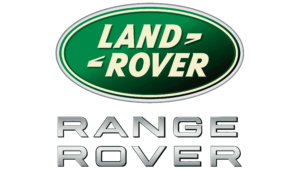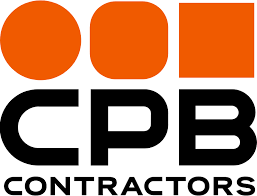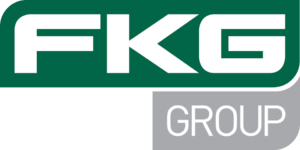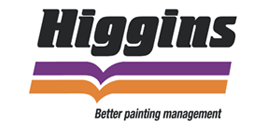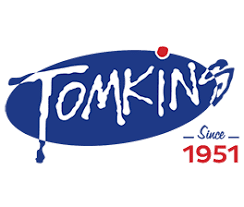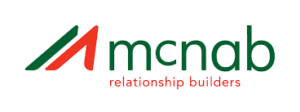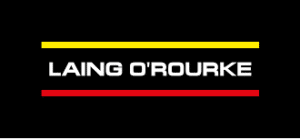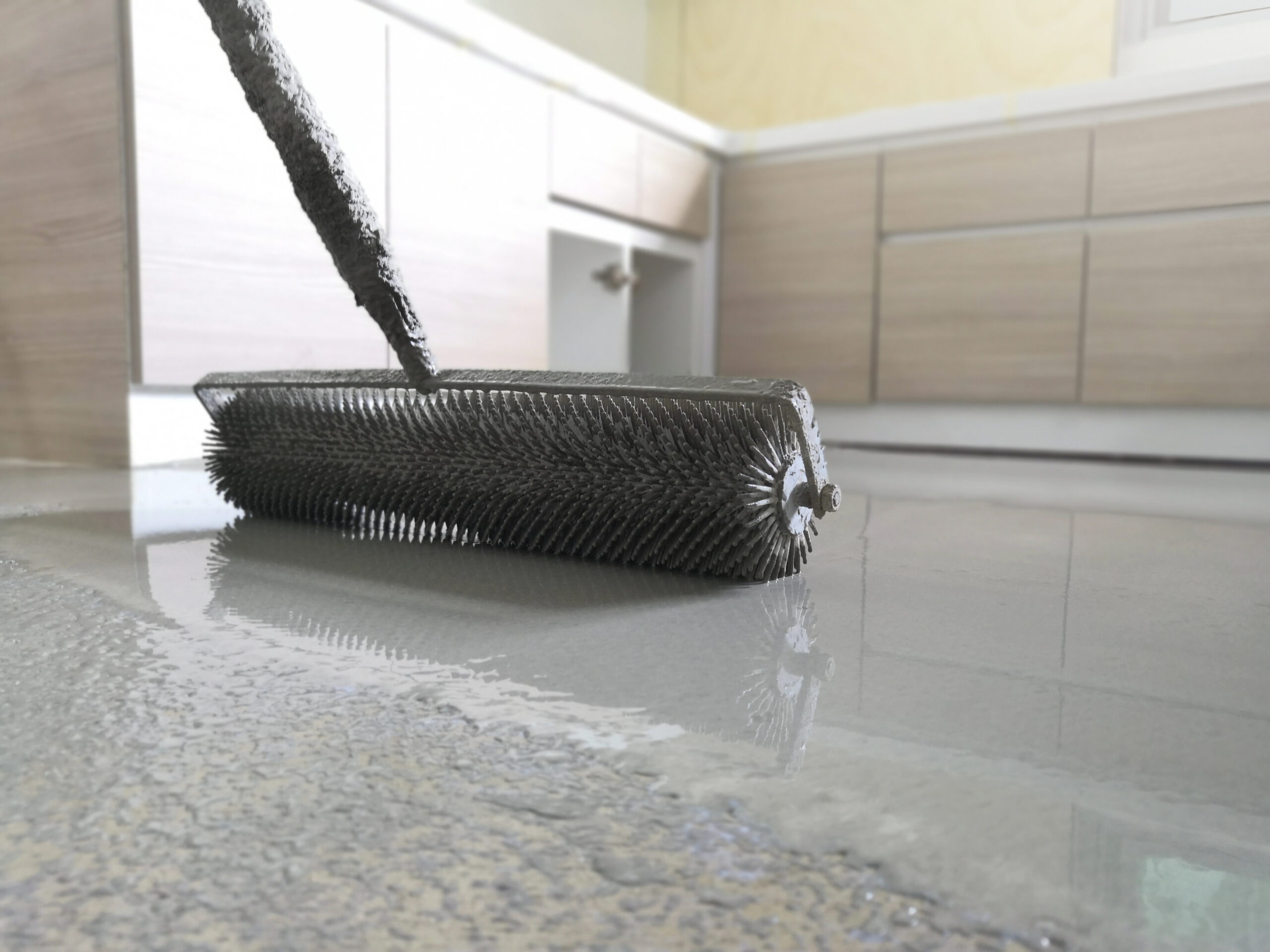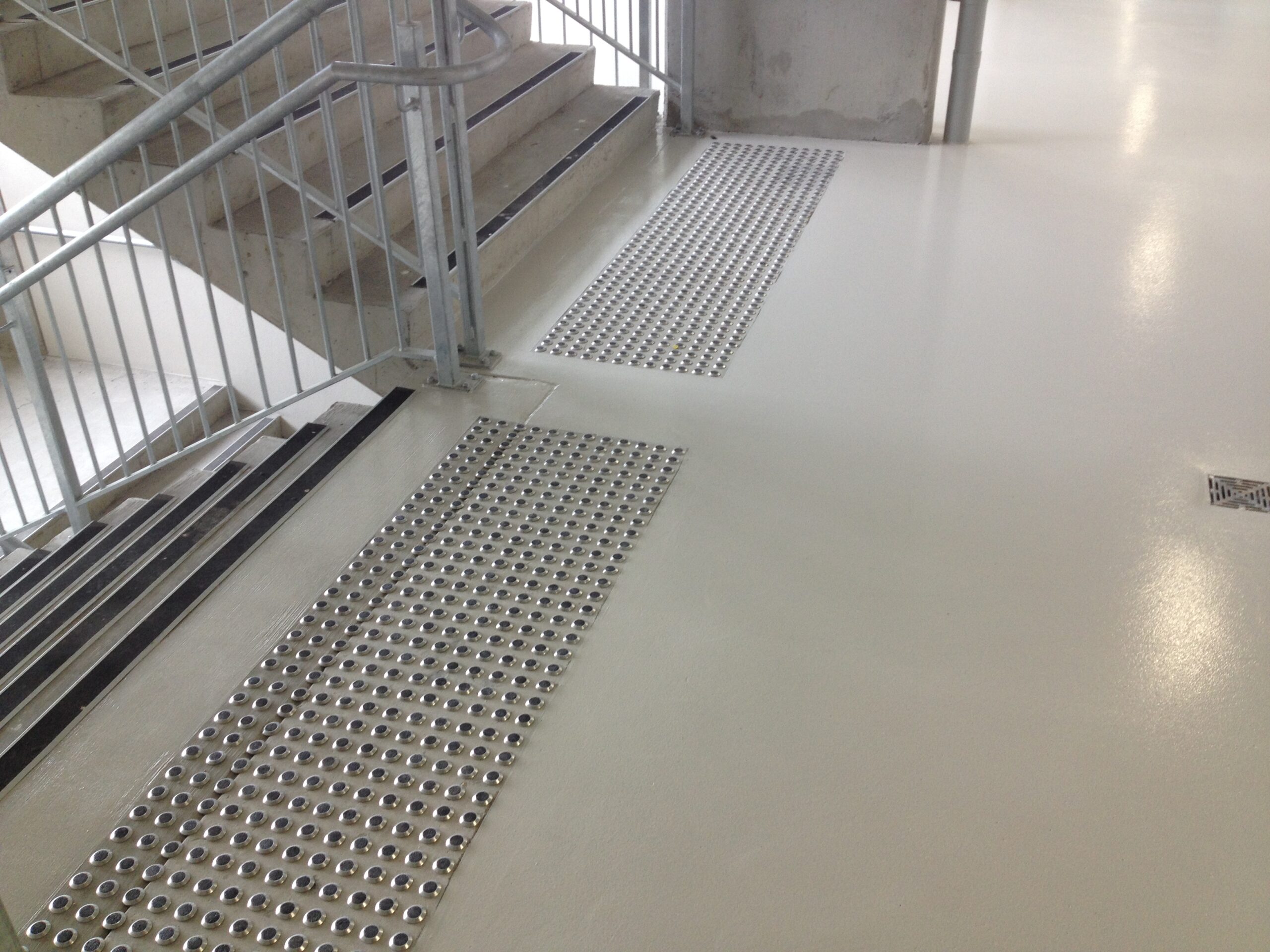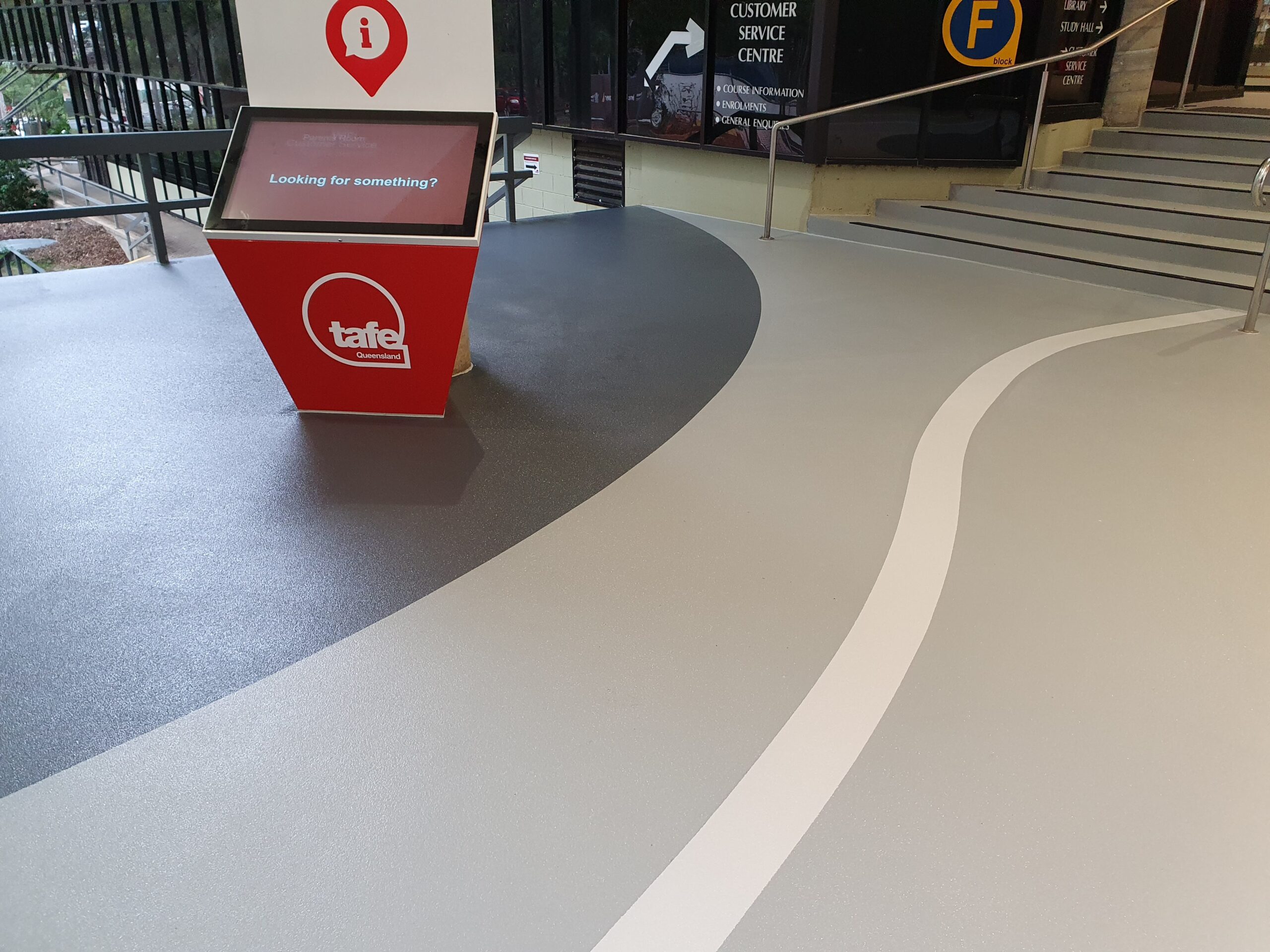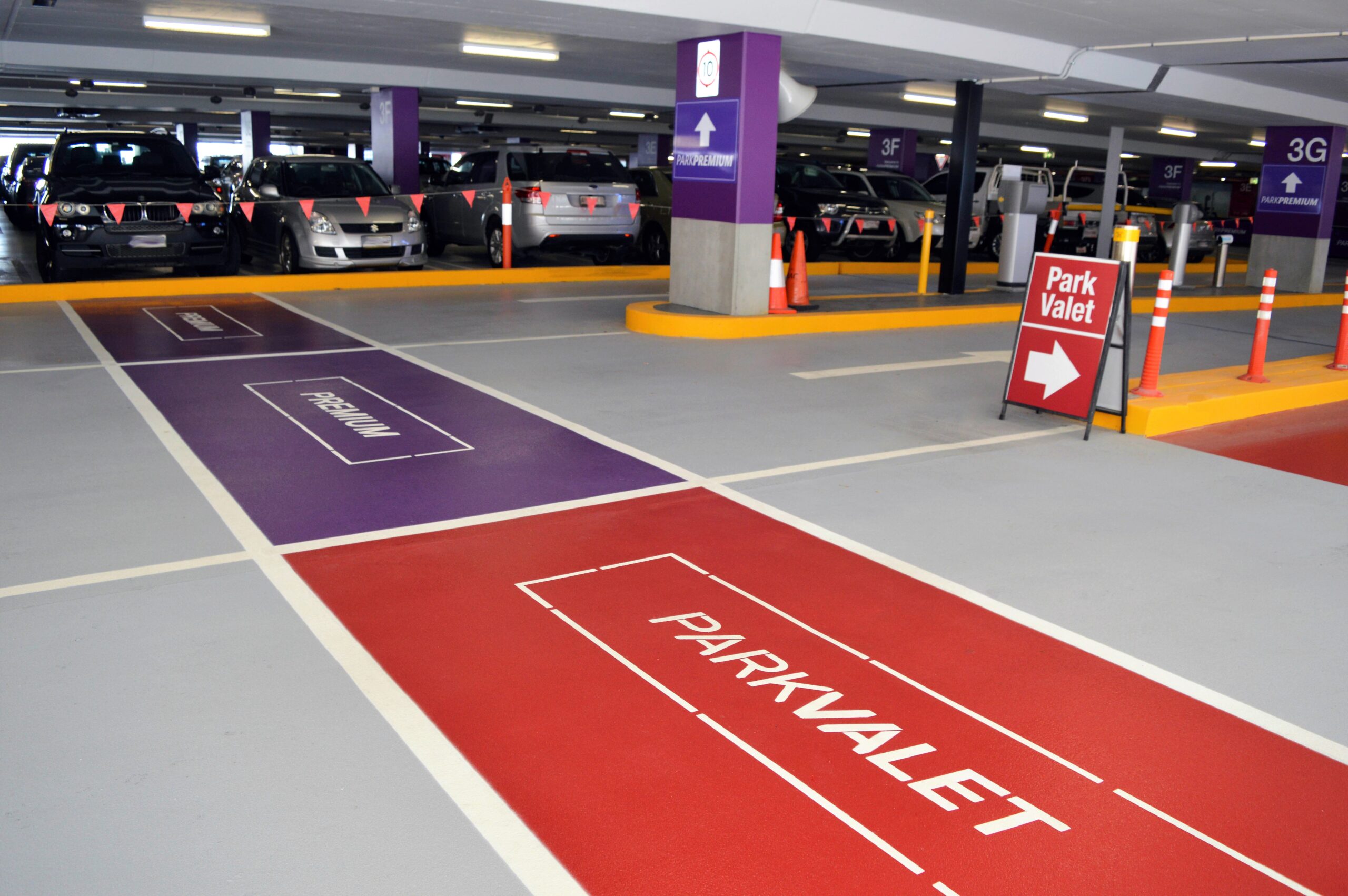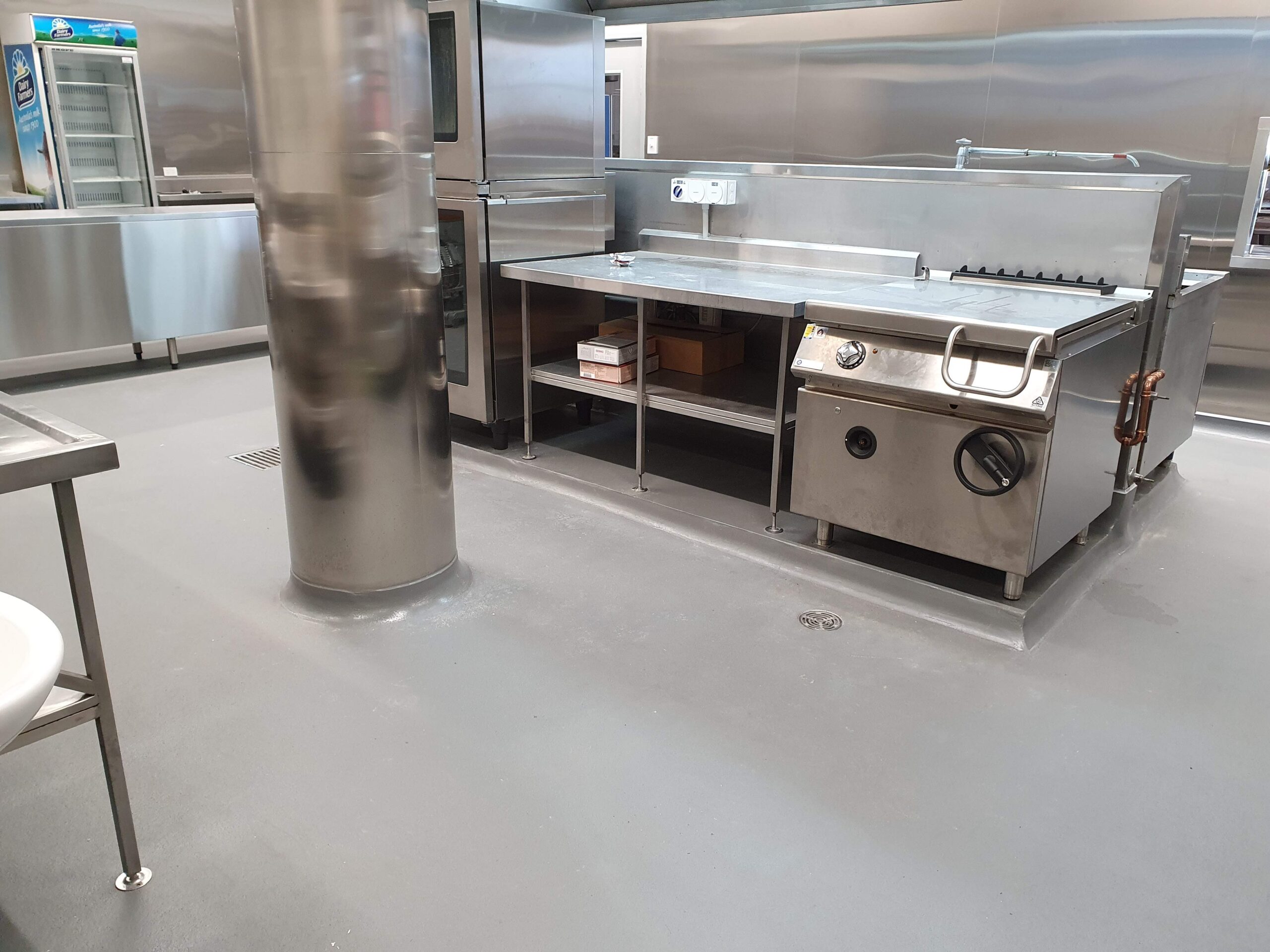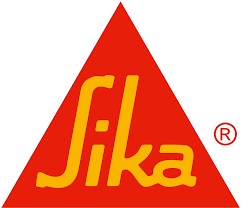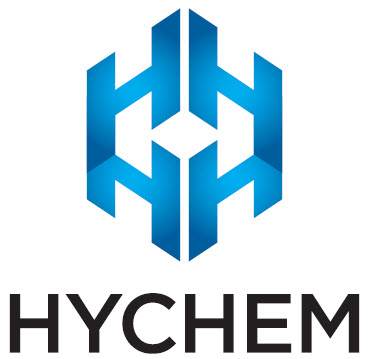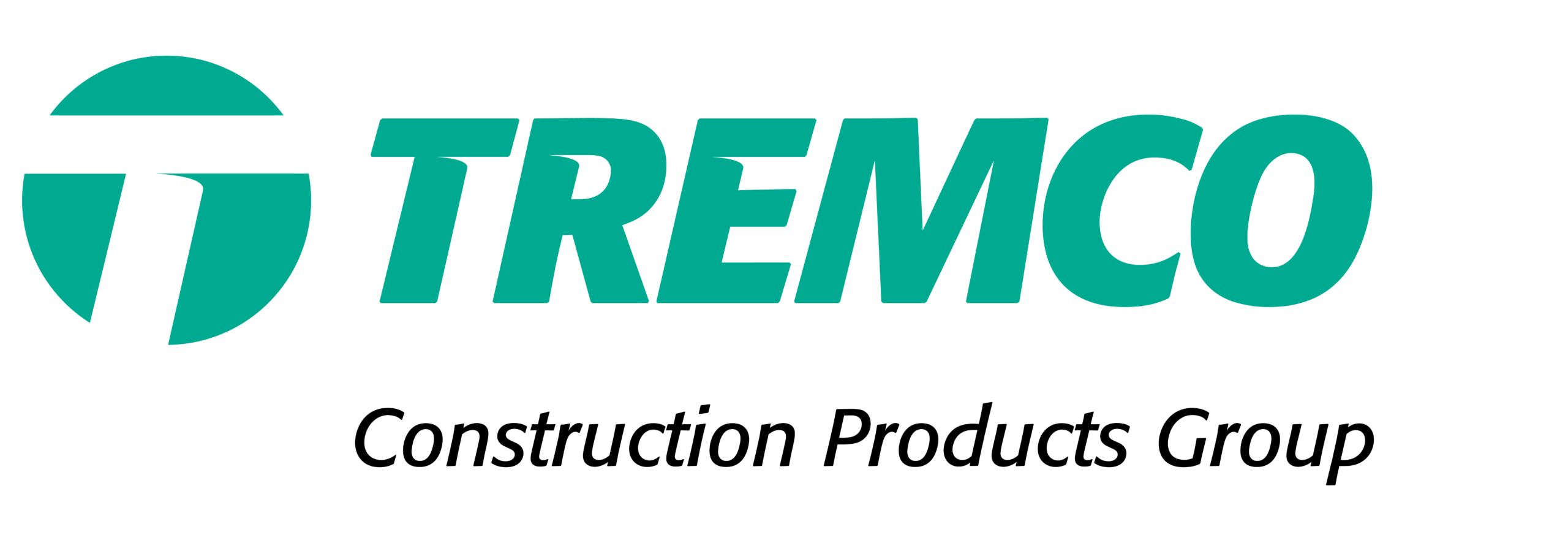
Epoxy Flooring
Epoxy Flooring
Industries
What is Epoxy Flooring
Epoxy Flooring is a form of synthetic resin flooring that is installed over the top of an appropriately prepared substrate, usually concrete. Epoxy flooring systems generally comprise of multiple layers of thermosetting resin, that once fully cured, form a strong and permanent bond that presents a seamless, impervious, and decorative barrier to protect the substrate.
Epoxy flooring is a broadly used term because of the products versatility and huge range of application options. Ranging from epoxy roll coats to self-levelling epoxy trowel down systems, all epoxy floors offer very good mechanical and chemical resistance and can be customised to a wide range of colours, textures, patterns, and decorative options. It is for this reason that epoxy flooring is the preferred floor finish across the automotive, food & beverage, manufacturing, healthcare, aviation, and educational industries. Contact us to discuss any epoxy flooring needs on your commercial, industrial, or residential premises.

High Strength & Durable

Promotes good hygiene

Chemical Resistant

Oil Resistant

Slip-Resistant & Safe

Colour Selection & Aesthetics

Easy to Clean

Longevity

Customisable
WHY MULTIBLAST
Multiblast Industrial Flooring is a market leading contractor in epoxy flooring installation throughout Brisbane, Gold Coast and South East QLD. We supply and install a huge range of high-performance epoxy floor coating systems, and work closely with our product manufacturers to deliver the most efficient epoxy flooring systems tailored to suit our clients’ needs.
With over 30 years of experience, our staff are highly trained experts with extensive industry knowledge and experience when it comes to epoxy flooring. We have gained PCCP third party accreditation (administered through CSIRO) and are a preferred contractor for all QLD Government epoxy flooring works, including QFES, QAS, Education QLD, QPS and the Australian Defence Force.
Multiblast is a nominated preferred epoxy installer for several tier one product manufacturers, including Sika, Flowcrete, Hychem, Tremco, Parchem and Dulux to name a few. Feel free to contact us to see how we can help with your epoxy flooring needs.
Benefits of Epoxy Flooring

High Strength & Durable
Epoxy flooring systems offer a high strength flooring solution with improved durability when compared to standard concrete. An epoxy flooring system will significantly improve the scratch & abrasion resistance, impact resistance, and longevity of a concrete floor.
Promotes Good Hygiene
An epoxy flooring system offers a seamless, sealed, and impervious floor finish that is easy to sweep or wipe clean. Dirt, debris, and other contaminants such as water, oil and bacteria will not penetrate in to the concrete and can easily be removed from the surface.
Specialised coating products are also available that contain an antimicrobial agent that will reduce or inhibit the ability for micro-organisms to grow on the surface of the floor

Colour Selection & Aesthetics
Epoxy coatings not only improve the performance characteristics of a floor, but they can look great too! The appearance and first impression of a floor can be greatly improved by incorporating various colours, demarcation, line marking and signage. Our coatings come in a wide range of AS2700 and RAL colours with customised line marking and layout options available. Epoxy flooring is a great way to enhance the appearance of any concrete surface, new or old

Chemical Resistant
Having a floor finish that is resistant to certain chemicals is often necessary for everyday use of a facility. Numerous chemicals, corrosive by-products, and contaminants (fats, oils, blood, sugar, and acids) can corrode and damage a floor very quickly. This can lead to expensive repairs being required and often this is not possible where machinery and equipment may be in the way, or a facility cannot shut down. Having a suitable chemical resistant epoxy flooring system installed from the start can save time and money down the track. All our epoxy coatings offer a good chemical resistant barrier to protecting the concrete substrate underneath. We also have options available to suit specialised or high chemical resistant requirements. Contact us to find out more

Slip-Resistant & Safety
Our epoxy flooring systems can be tailored to suit any specific slip resistance requirements. Controlling the non-slip properties of an epoxy floor can keep staff and patrons safe whilst also maintaining insurance and health and safety obligations. With the inclusion of various aggregates, including Aluminium Oxide, we can control the slip resistant properties of the epoxy floor. Texture and traction can be improved, and a specific Australian Standard slip rating can be achieved. Safety line marking, pedestrian walkways, and signage can also be installed to ensure pedestrian safety and assist with traffic management in your facility
Types of Epoxy Flooring
-
Epoxy Flake Flooring
Epoxy Flake Flooring Multiblast’s Epoxy Flake Flooring systems comprise of multiple base layers of coloured epoxy or UV stable polyurethane, broadcast with coloured acrylic flakes, and then sealed with multiple coats of a clear UV-stable resin. This results in a seamless and decorative floor finish that is extremely tough and looks attractive too.
Epoxy Flake Floors inherit all the advantages of other epoxy floors, with the addition of a huge decorative range of flake colours and combinations available. Multiblast have been installing epoxy flake floors for over 25 years, and all our epoxy flake flooring systems have been developed and refined to withstand the harsh Australian conditions.
Epoxy Flake Flooring can completely transform any new or old concrete surface, making the space look fantastic. Our systems are suitable to be installed both internally and externally, and non-slip options are available. Popular installation locations for flake floors include garage floors, driveways, laundries, patios, workshops, bathrooms and school amenities.
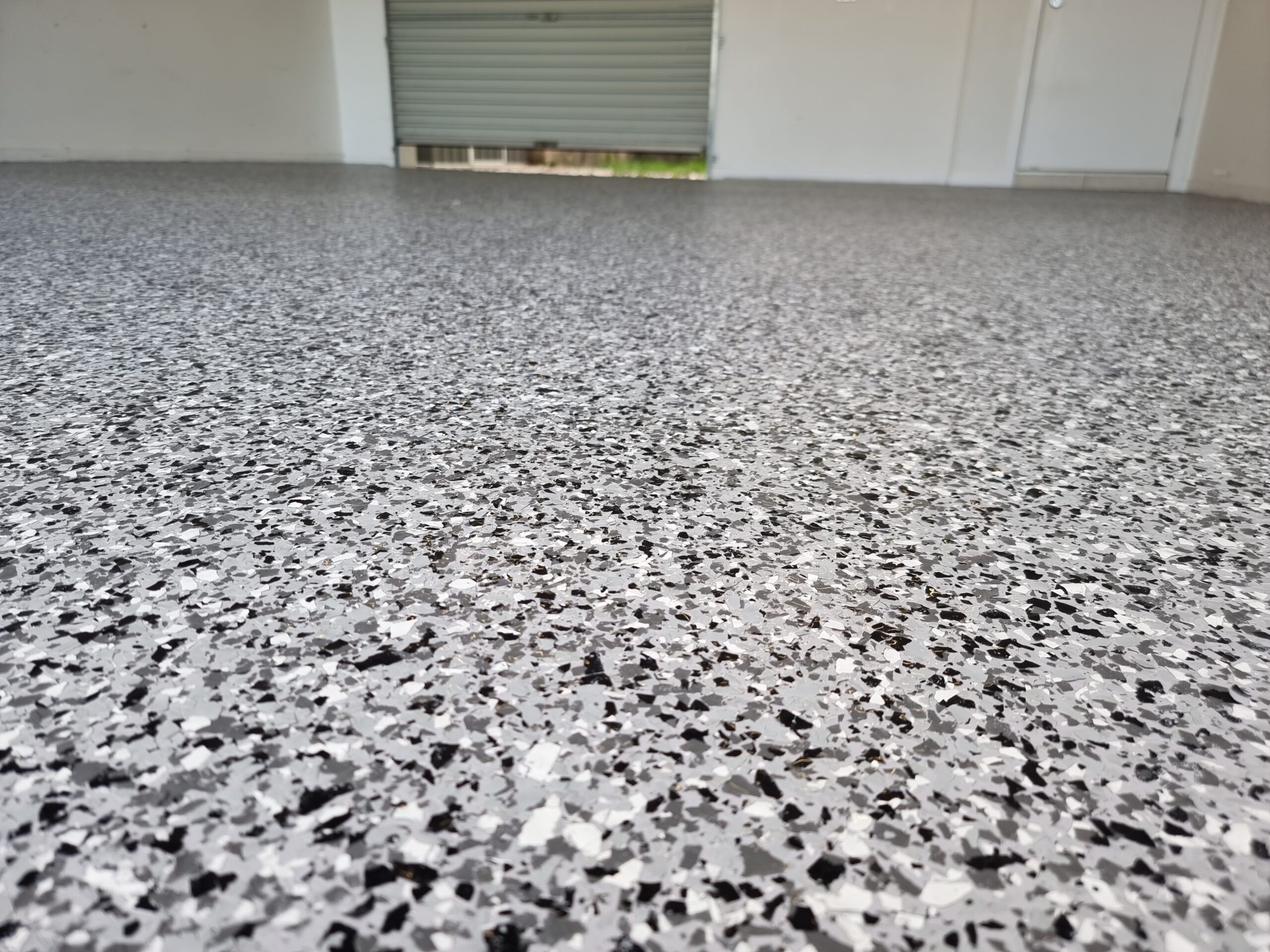
-
Non-Slip Epoxy, Anti-Skid Flooring
Minimising risk in any workplace, facility, or public space should always be a top priority. Slips, trips, and falls are one of the highest causes of injury (and lawsuits) in the workplace, so it is increasingly important to ensure that all floor surfaces do not present a slip hazard.
At Multiblast, our epoxy flooring systems can incorporate the addition of various granules, or non-slip ‘grit’, to create a non-slip epoxy flooring system. Our skilled applicators can control the size and quantity of non-slip grit additive used, to ensure that our epoxy coatings meet or exceed the required specification or Australian Standards.
We use high strength non-slip additives, such as aluminium oxide or bauxite, to ensure the anti-slip texture lasts. Some softer additives such as silica sand can crush and wear away over time, particularly in high traffic areas, leaving the surface slippery again. We believe that selecting an appropriate non-slip medium is just as important as deciding to correct a potential slip-related hazard.
Multiblast can arrange to have any floor area inspected and independently slip-tested to see that it meets Australian Standards for safety. Contact us today to find out more or Arrange a Slip Test.
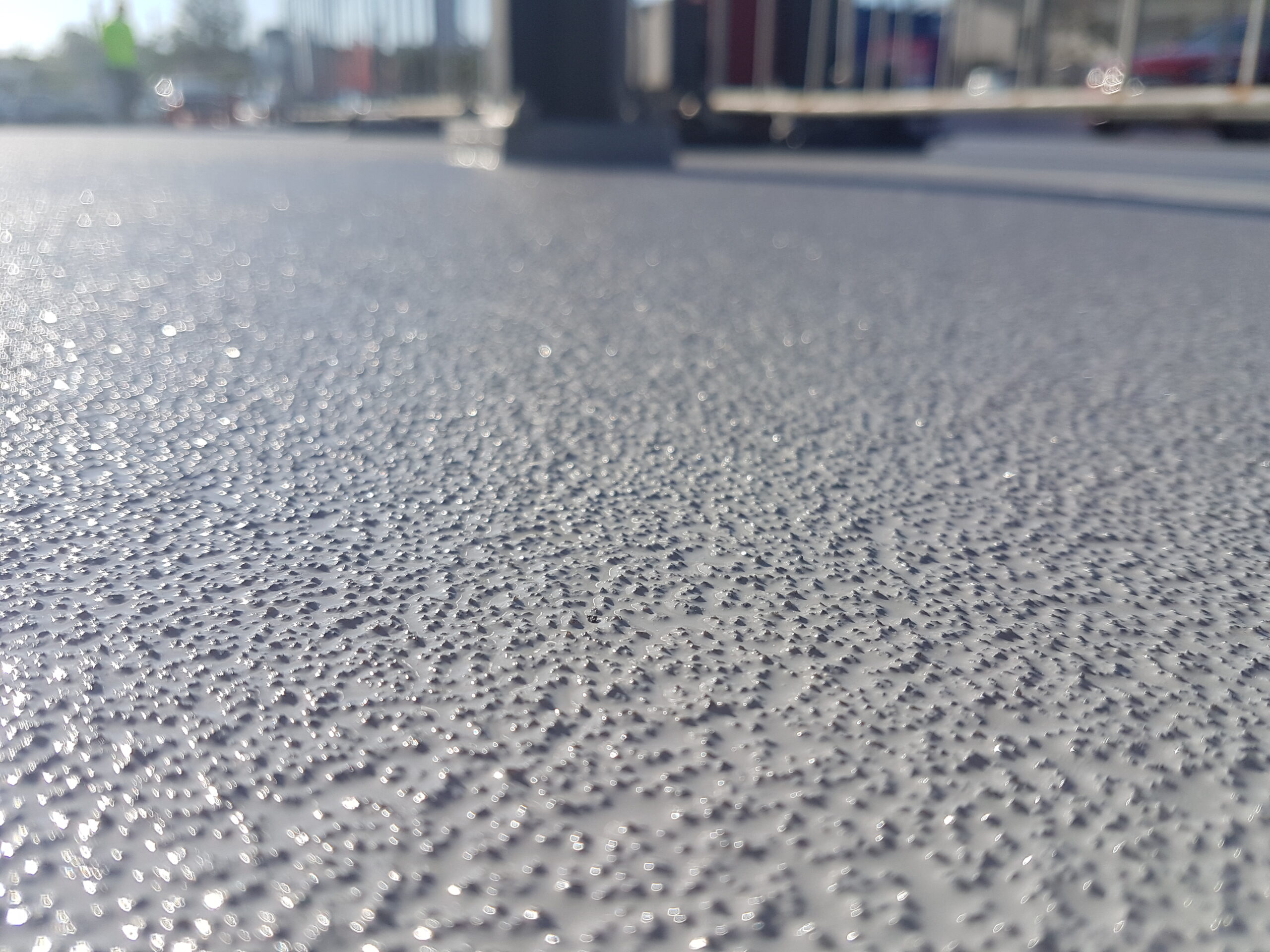
-
Anti-Static ESD Epoxy Flooring
Electrostatic dissipative epoxy flooring, also known as ESD epoxy flooring, is an epoxy resin flooring system that conducts static electrical charge, at an appropriately safe level, to a grounding point where the charge is removed from the room. A conductive ESD epoxy floor improves safety by continuously allowing static discharge and dissipation of electrical charge from an area, whilst also maintaining the other benefits of having an epoxy floor.
Anti-static ESD epoxy floors are specifically formulated for environments where there is a high sensitivity to electrical charge. Typically used in facilities that handle electronic components, cleanroom environments, or areas with a risk of explosion.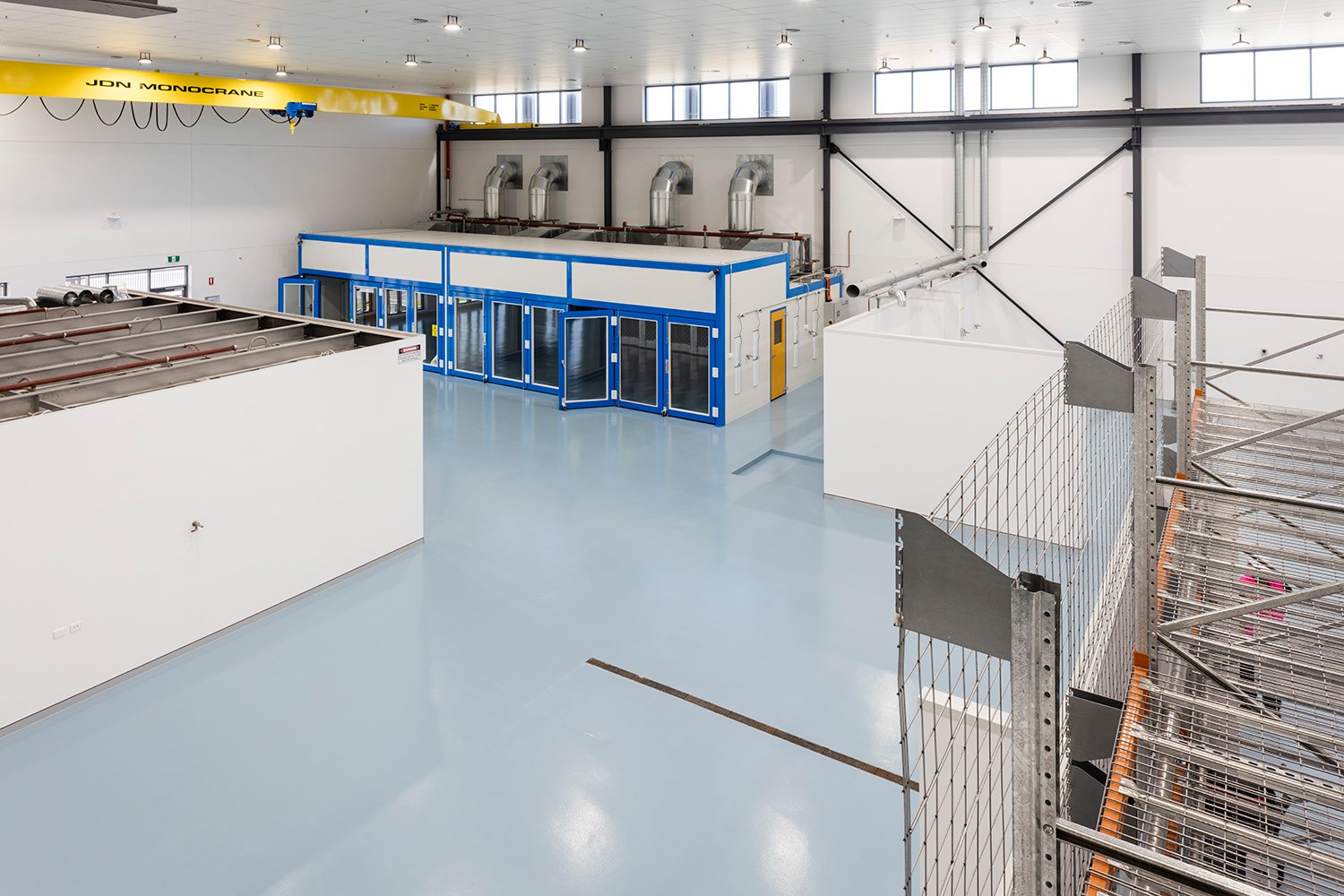
-
Polyurethane Cement Flooring (PU Cement)
Polyurethane Cement flooring systems often fall under the broad umbrella of ‘epoxy flooring’. Although they do share some similarities, their chemical makeup and characteristics are somewhat different, so they should not be considered the same thing. The primary difference is their molecular structure, which affects how the resins fuse together during the curing process. This results in polyurethane cement having various differing properties to epoxies when cured, and these can make PU cement more suited to certain environments.
Polyurethane cement flooring systems generally offer better strength and durability when exposed to a variety of testing conditions, such as heavy loads and impact, extreme temperatures, and corrosive chemicals. The thickness and slight flexibility of PU cement make it better at handling extreme temperatures, or dealing with ‘thermal shock’, so these systems are the preferred flooring system in cold-rooms or freezers, and high temperature places such as commercial kitchens and bakeries.
Polyurethane cement floors offer superior chemical resistance when compared to epoxy, so this makes them popular in the food & beverage industry. Anywhere the floor may be exposed to corrosive acids, organic acids, caustic, sugar, or malt, should consider installing a polyurethane cement flooring system.
Breweries, Food Processing, Dairies, Commercial Kitchens & Bars, Meat Processing
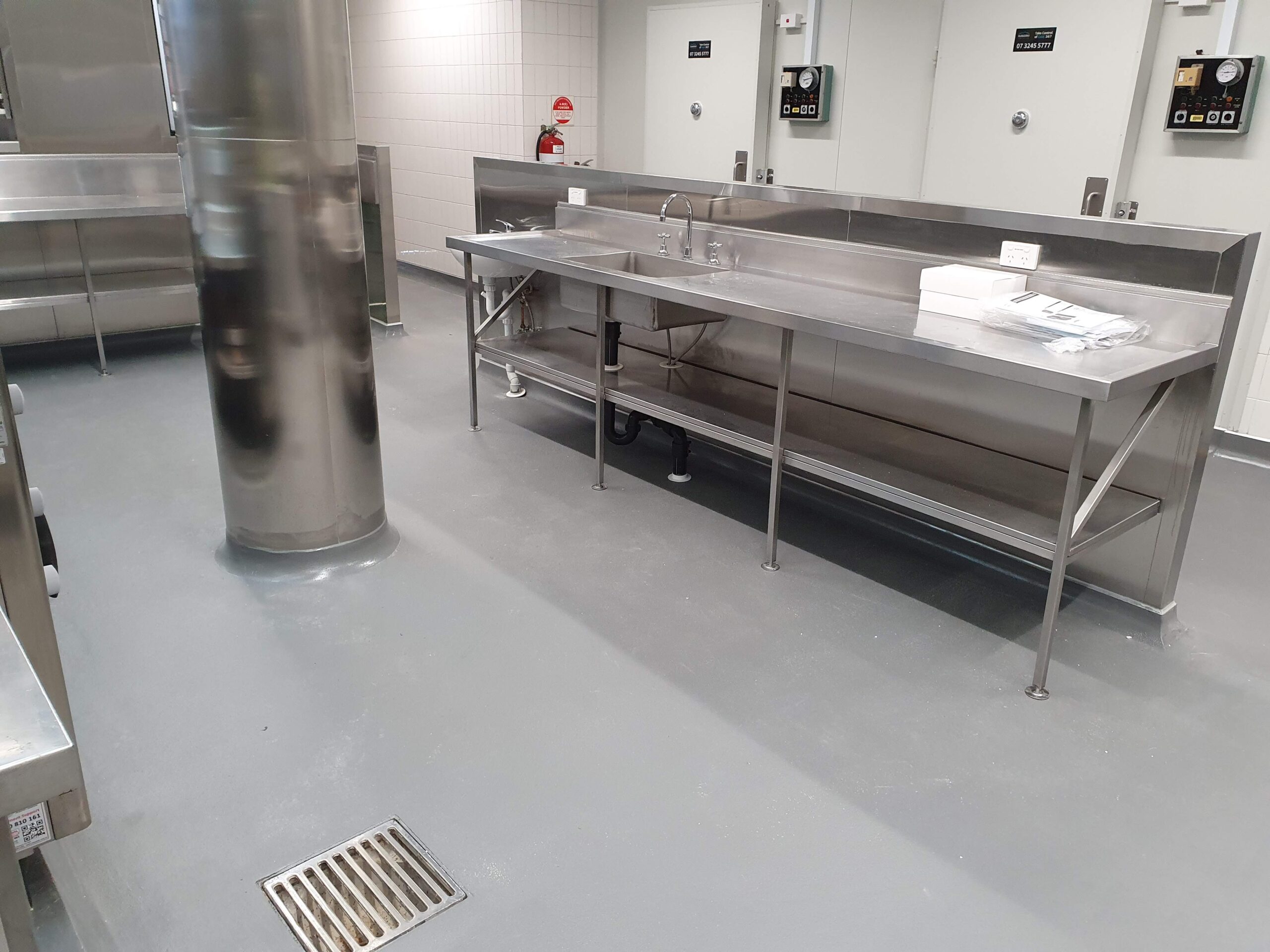
-
Epoxy Mortar Screeding & Ramping
Epoxy resin is an extremely versatile product that has a huge variety of uses. Epoxy resin can be used as a ‘binder’ and blended with select graded aggregates to create a range epoxy mortar screeds.
When mixed appropriately, an extremely high strength and versatile epoxy screed mix can be produced. This malleable mix can be screeded to any thickness, from as little as 1mm thick and to no maximum thickness. Epoxy mortar screeds are generally far superior to cement-based screeds as they are fast setting, have no minimum install thickness, and are very high strength in comparison.
Epoxy mortars can be screeded to fix or adjust floor heights, including levelling, creating falls to floor wastes, or to build high strength ramps, bunds or hobs.
Benefits of Epoxy Mortar Screeds
- Adjust or change floor heights
- Create suitable falls to wastes/drains
- Create ramps, bunds, hobs or plinths
- High Compressive Strength (> 55 N/mm²)
- Extremely good bond to concrete
- Compatible with epoxy and polyurethane coatings
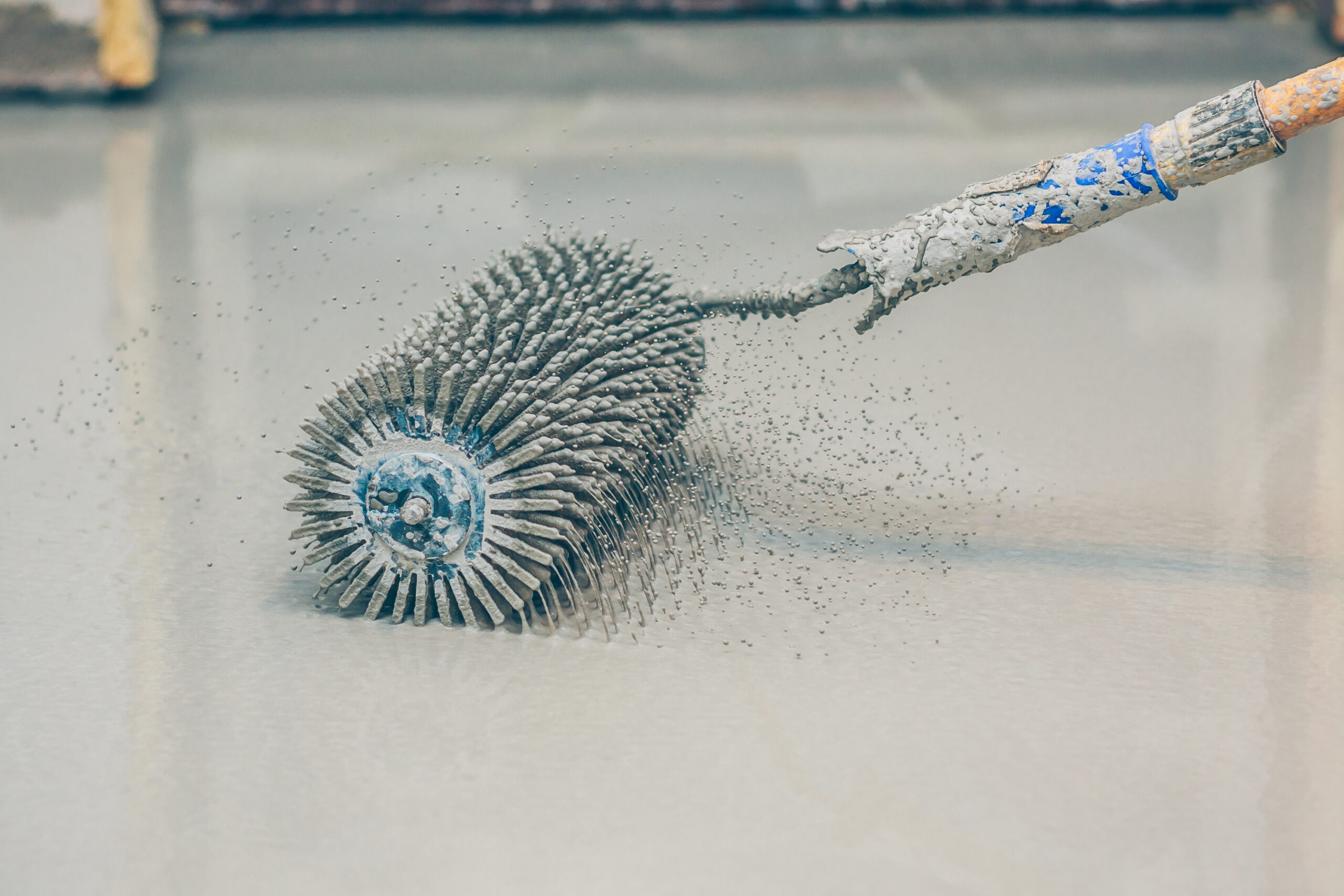
-
Epoxy Crack Repair & Substrate Repairs
Prior to installation of a new epoxy floor there may be a requirement to carry out repair works to the bring the condition of the substrate to a suitable level to be able to confidently apply the nominated epoxy coating system.
Multiblast will assess the condition of the substrate and can carry out the appropriate repair and rectification works as required. Repair works may include:
- Crack chasing and Epoxy Filling
- Epoxy Crack Repair & Injection
- Epoxy patching to divots, chips, and gouges
- Removal of damaged/failing concrete
- Epoxy Slurry/Skim Coats to larger areas
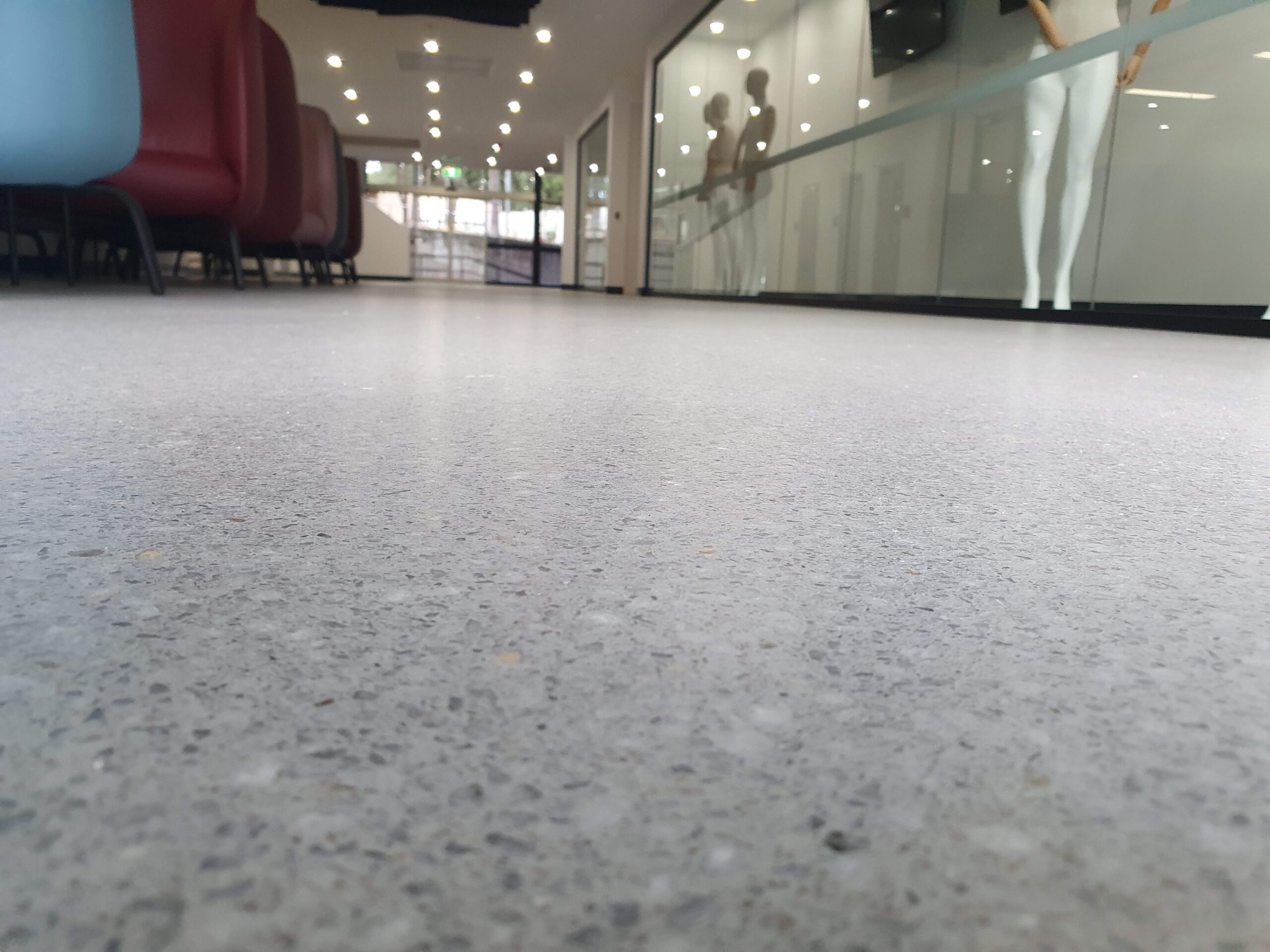
-
Epoxy Coving
Epoxy coving is the process of installing a solid epoxy mortar curved radius at the junction where the floor meets a wall or vertical surface. Having a solid curved radius cove in place allows for an epoxy or polyurethane floor coating system to seamlessly return up walls or plinths to a nominated height.
Having the flooring system seamlessly return over the cove and up the wall not only prevents water from leaking underneath the walls, but epoxy coving prevents bacteria from harbouring at the base of the walls and also makes cleaning the floor much easier. Coving is generally a Food Safety requirement for industries where food is handled, such as food processing and commercial kitchens.
Benefits of Epoxy Coving
- Easy to clean and maintains hygiene
- Reduces the harbouring of bacteria, germs, and grime
- Seamless floor to wall junction
- Meets food safety requirements (Food Safe, HACCP Compliant)
Where should epoxy coving be used?
- Commercial Kitchens and Bars
- Food & Beverage Processing
- Breweries & Distilleries
- Butchers & Bakeries
- Wet Areas and Washbays
- Coolrooms & Freezers
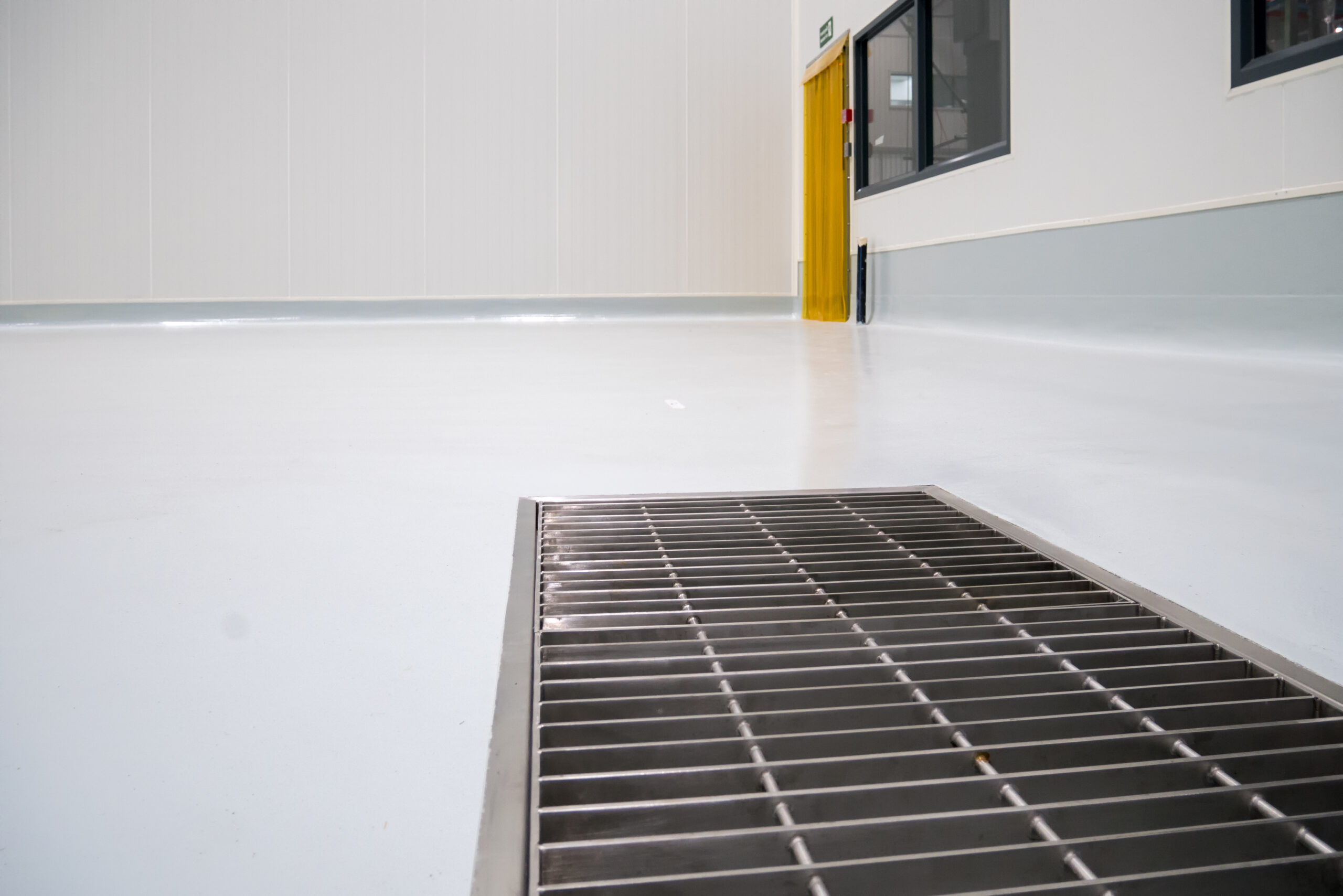
-
Fast Curing MMA
Using a methyl methacrylate (MMA) resin system, allows the floor to be ready to use 2 hours after application. MMA flooring systems are a great solution to minimise costly shutdowns.
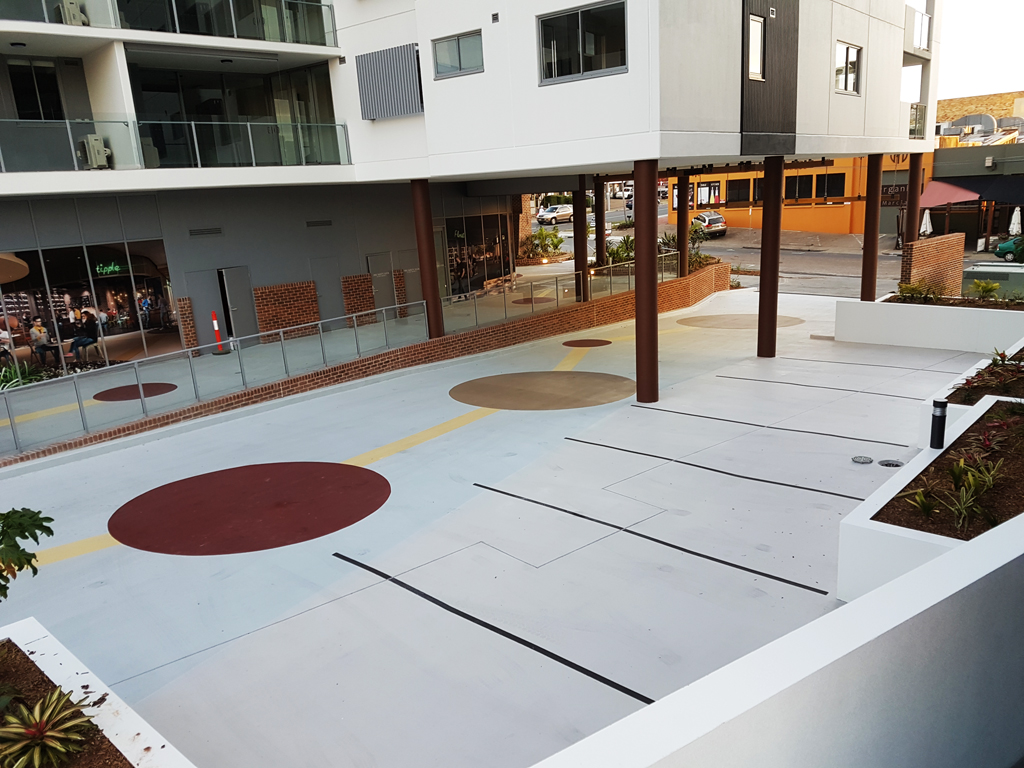
-
Line Marking
Our coatings come in a wide range of colours with customised line marking and layout options available. Safety line marking and walkways can be installed to ensure pedestrian safety and assist with traffic management.
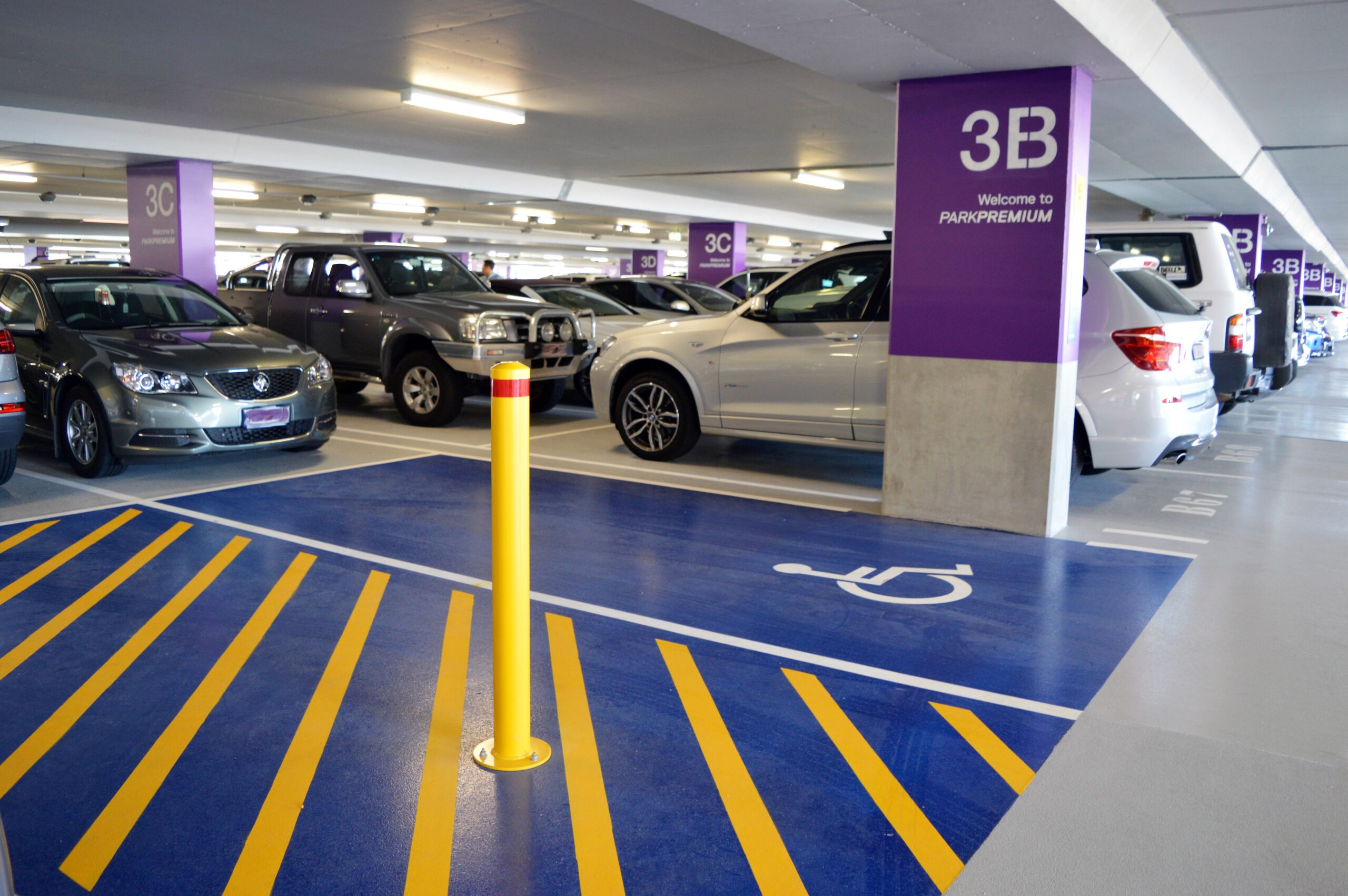
-
Epoxy Flake Flooring
-
Non-Slip Epoxy, Anti-Skid Flooring
-
Anti-Static ESD Epoxy Flooring
-
Polyurethane Cement Flooring (PU Cement)
-
Epoxy Mortar Screeding & Ramping
-
Epoxy Crack Repair & Substrate Repairs
-
Epoxy Coving
-
Fast Curing MMA
-
Line Marking
Epoxy Flake Flooring
Epoxy Flake Flooring Multiblast’s Epoxy Flake Flooring systems comprise of multiple base layers of coloured epoxy or UV stable polyurethane, broadcast with coloured acrylic flakes, and then sealed with multiple coats of a clear UV-stable resin. This results in a seamless and decorative floor finish that is extremely tough and looks attractive too.
Epoxy Flake Floors inherit all the advantages of other epoxy floors, with the addition of a huge decorative range of flake colours and combinations available. Multiblast have been installing epoxy flake floors for over 25 years, and all our epoxy flake flooring systems have been developed and refined to withstand the harsh Australian conditions.
Epoxy Flake Flooring can completely transform any new or old concrete surface, making the space look fantastic. Our systems are suitable to be installed both internally and externally, and non-slip options are available. Popular installation locations for flake floors include garage floors, driveways, laundries, patios, workshops, bathrooms and school amenities.

Non-Slip Epoxy, Anti-Skid Flooring
Minimising risk in any workplace, facility, or public space should always be a top priority. Slips, trips, and falls are one of the highest causes of injury (and lawsuits) in the workplace, so it is increasingly important to ensure that all floor surfaces do not present a slip hazard.
At Multiblast, our epoxy flooring systems can incorporate the addition of various granules, or non-slip ‘grit’, to create a non-slip epoxy flooring system. Our skilled applicators can control the size and quantity of non-slip grit additive used, to ensure that our epoxy coatings meet or exceed the required specification or Australian Standards.
We use high strength non-slip additives, such as aluminium oxide or bauxite, to ensure the anti-slip texture lasts. Some softer additives such as silica sand can crush and wear away over time, particularly in high traffic areas, leaving the surface slippery again. We believe that selecting an appropriate non-slip medium is just as important as deciding to correct a potential slip-related hazard.
Multiblast can arrange to have any floor area inspected and independently slip-tested to see that it meets Australian Standards for safety. Contact us today to find out more or Arrange a Slip Test.

Anti-Static ESD Epoxy Flooring
Electrostatic dissipative epoxy flooring, also known as ESD epoxy flooring, is an epoxy resin flooring system that conducts static electrical charge, at an appropriately safe level, to a grounding point where the charge is removed from the room. A conductive ESD epoxy floor improves safety by continuously allowing static discharge and dissipation of electrical charge from an area, whilst also maintaining the other benefits of having an epoxy floor.
Anti-static ESD epoxy floors are specifically formulated for environments where there is a high sensitivity to electrical charge. Typically used in facilities that handle electronic components, cleanroom environments, or areas with a risk of explosion.

Polyurethane Cement Flooring (PU Cement)
Polyurethane Cement flooring systems often fall under the broad umbrella of ‘epoxy flooring’. Although they do share some similarities, their chemical makeup and characteristics are somewhat different, so they should not be considered the same thing. The primary difference is their molecular structure, which affects how the resins fuse together during the curing process. This results in polyurethane cement having various differing properties to epoxies when cured, and these can make PU cement more suited to certain environments.
Polyurethane cement flooring systems generally offer better strength and durability when exposed to a variety of testing conditions, such as heavy loads and impact, extreme temperatures, and corrosive chemicals. The thickness and slight flexibility of PU cement make it better at handling extreme temperatures, or dealing with ‘thermal shock’, so these systems are the preferred flooring system in cold-rooms or freezers, and high temperature places such as commercial kitchens and bakeries.
Polyurethane cement floors offer superior chemical resistance when compared to epoxy, so this makes them popular in the food & beverage industry. Anywhere the floor may be exposed to corrosive acids, organic acids, caustic, sugar, or malt, should consider installing a polyurethane cement flooring system.
Breweries, Food Processing, Dairies, Commercial Kitchens & Bars, Meat Processing

Epoxy Mortar Screeding & Ramping
Epoxy resin is an extremely versatile product that has a huge variety of uses. Epoxy resin can be used as a ‘binder’ and blended with select graded aggregates to create a range epoxy mortar screeds.
When mixed appropriately, an extremely high strength and versatile epoxy screed mix can be produced. This malleable mix can be screeded to any thickness, from as little as 1mm thick and to no maximum thickness. Epoxy mortar screeds are generally far superior to cement-based screeds as they are fast setting, have no minimum install thickness, and are very high strength in comparison.
Epoxy mortars can be screeded to fix or adjust floor heights, including levelling, creating falls to floor wastes, or to build high strength ramps, bunds or hobs.
Benefits of Epoxy Mortar Screeds
- Adjust or change floor heights
- Create suitable falls to wastes/drains
- Create ramps, bunds, hobs or plinths
- High Compressive Strength (> 55 N/mm²)
- Extremely good bond to concrete
- Compatible with epoxy and polyurethane coatings

Epoxy Crack Repair & Substrate Repairs
Prior to installation of a new epoxy floor there may be a requirement to carry out repair works to the bring the condition of the substrate to a suitable level to be able to confidently apply the nominated epoxy coating system.
Multiblast will assess the condition of the substrate and can carry out the appropriate repair and rectification works as required. Repair works may include:
- Crack chasing and Epoxy Filling
- Epoxy Crack Repair & Injection
- Epoxy patching to divots, chips, and gouges
- Removal of damaged/failing concrete
- Epoxy Slurry/Skim Coats to larger areas

Epoxy Coving
Epoxy coving is the process of installing a solid epoxy mortar curved radius at the junction where the floor meets a wall or vertical surface. Having a solid curved radius cove in place allows for an epoxy or polyurethane floor coating system to seamlessly return up walls or plinths to a nominated height.
Having the flooring system seamlessly return over the cove and up the wall not only prevents water from leaking underneath the walls, but epoxy coving prevents bacteria from harbouring at the base of the walls and also makes cleaning the floor much easier. Coving is generally a Food Safety requirement for industries where food is handled, such as food processing and commercial kitchens.
Benefits of Epoxy Coving
- Easy to clean and maintains hygiene
- Reduces the harbouring of bacteria, germs, and grime
- Seamless floor to wall junction
- Meets food safety requirements (Food Safe, HACCP Compliant)
Where should epoxy coving be used?
- Commercial Kitchens and Bars
- Food & Beverage Processing
- Breweries & Distilleries
- Butchers & Bakeries
- Wet Areas and Washbays
- Coolrooms & Freezers

Fast Curing MMA
Using a methyl methacrylate (MMA) resin system, allows the floor to be ready to use 2 hours after application. MMA flooring systems are a great solution to minimise costly shutdowns.

Line Marking
Our coatings come in a wide range of colours with customised line marking and layout options available. Safety line marking and walkways can be installed to ensure pedestrian safety and assist with traffic management.

ReQUEST A QUOTE
Car Park Coating SYSTEMS
RECENT PROJECTS

WHO WE HELP
OUR CLIENTS








